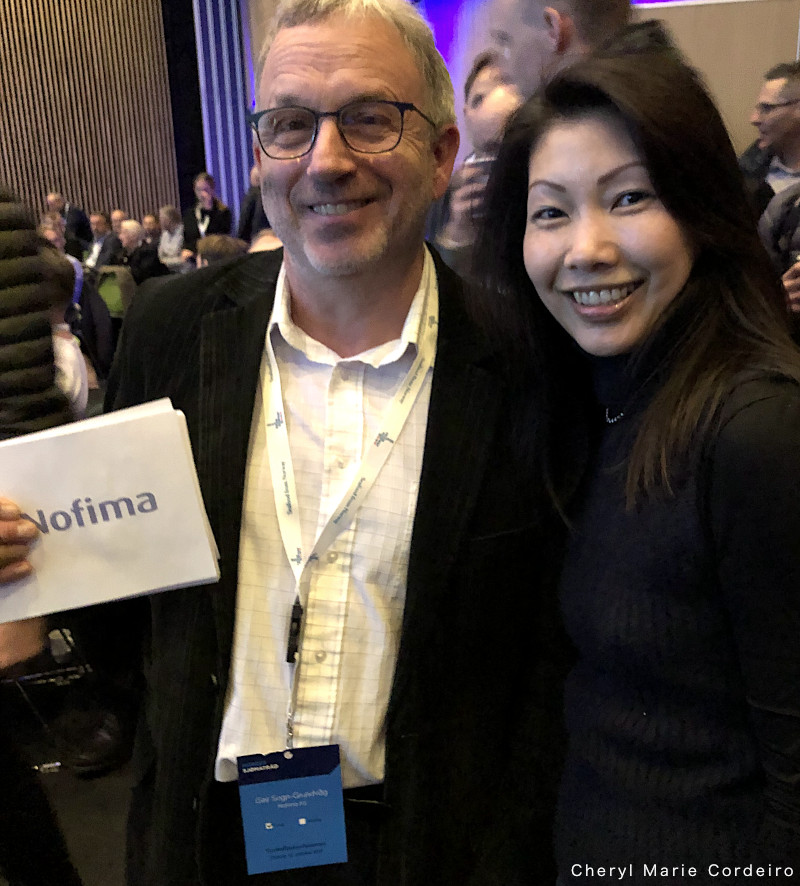Geir Sogn-Grundvåg [1], Senior Researcher at Nofima, and keynote speaker at Torskefiskkonferansen 2019, Clarion Hotel, The Edge, Tromsø, Norway.
Text & Photo © JE Nilsson & CM Cordeiro 2019
Hosted by the Norwegian Seafood Council [2], Torskefiskkonferanse 2019 took place on 10 October 2019, in Tromsø at Clarion Hotel, The Edge. The event saw a convening of more than 400 participants from various industry sectors, as well as academia and research. This one-day event is an excellent arena for the exchange of knowledge and for networking purposes.
There were 10 keynote speakers to the event, with the opening speech held by Roy Angelvik, State Secretary for the Ministry of Fisheries and Seafood [3]. Participants were also taken on travel journeys through video interviews shot on location in Italy and Portugal.
This year’s conference seemed to address the future of the codfish market in an era of uncertain global trade agreements. Personally, I thought there was a brilliant chemistry of perspectives between Øystein Dørum who is Chief Economist for Næringslivets Hovedorganisasjon (NHO) in Norway and Eirik Larsen, who is a Senior Analyst from DNB. Both addressed Norway’s economic context and business environment in relation to current global trade, one with a more positive overview than the other [4,5].
Craig A Morris, CEO of Genuine Alaska Pollock Producers (GAPP) shared in his speech [6], how they built a premium brand of wild Alaskan pollock. From focus group interviews, GAPP found that pollock was indeed known by consumers, even if industry often thought that the fish was hidden in products such as fish burgers or fish sticks. Improved packaging technology has made frozen pollock more accessible to consumers. Yet, many consumers felt unfamiliar with cooking fish even if they liked eating fish. As such, GAPP has worked towards providing for pollock to be a versatile protein in more accessible products, products that are affordable, easy to prepare and nutritious. Integrated sustainability is a large part of GAPP’s values, wherein they are also working towards engaging society by providing new, more open access to pollock information on their new website to be launched by end of October 2019. The three possibly overlapping customer segments for pollock are “the millennials” that drive sustainable consumption of food and seafood, “the affluent” who drive the consumption values of purchasing quality food over quantity and “the educated” that drive both values of sustainable food consumption and the purchase of authentic, quality food produce.
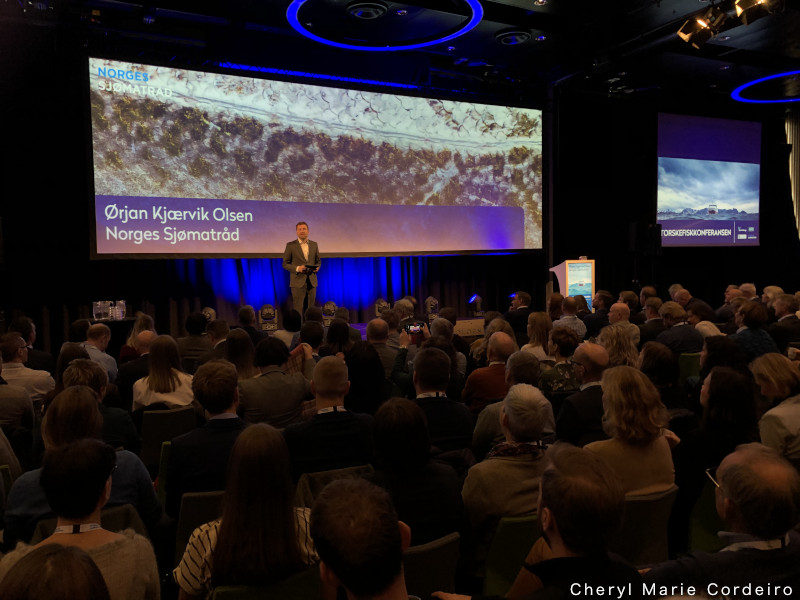
Ørjan K Olsen, Head of Insights Services at the Norwegian Seafood Council and host of Torskefiskkonferansen 2019.
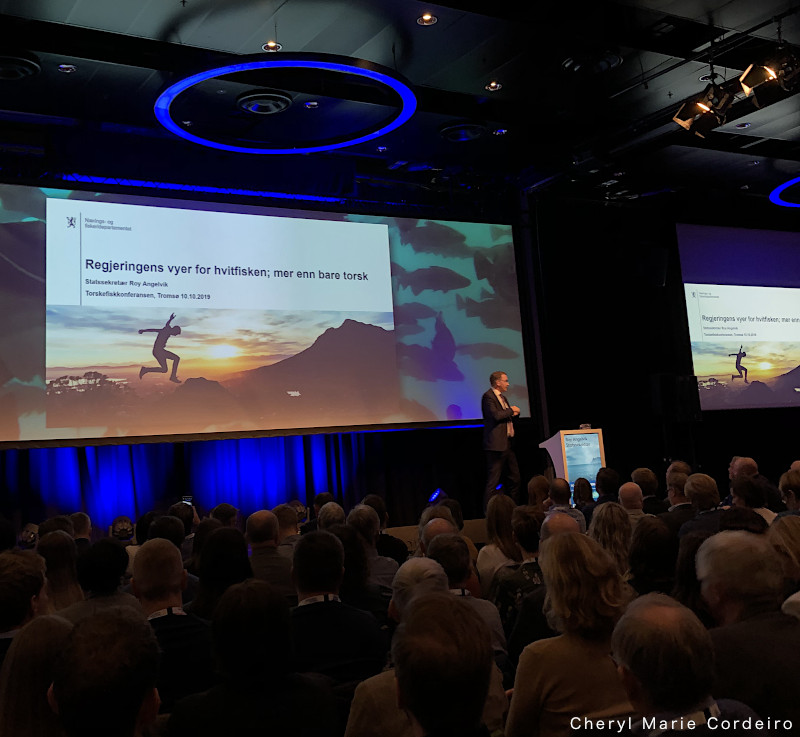
Roy Angelvik, State Secretary for the Ministry of Fisheries and Seafood, giving the opening speech to Torskefiskkonferansen 2019.
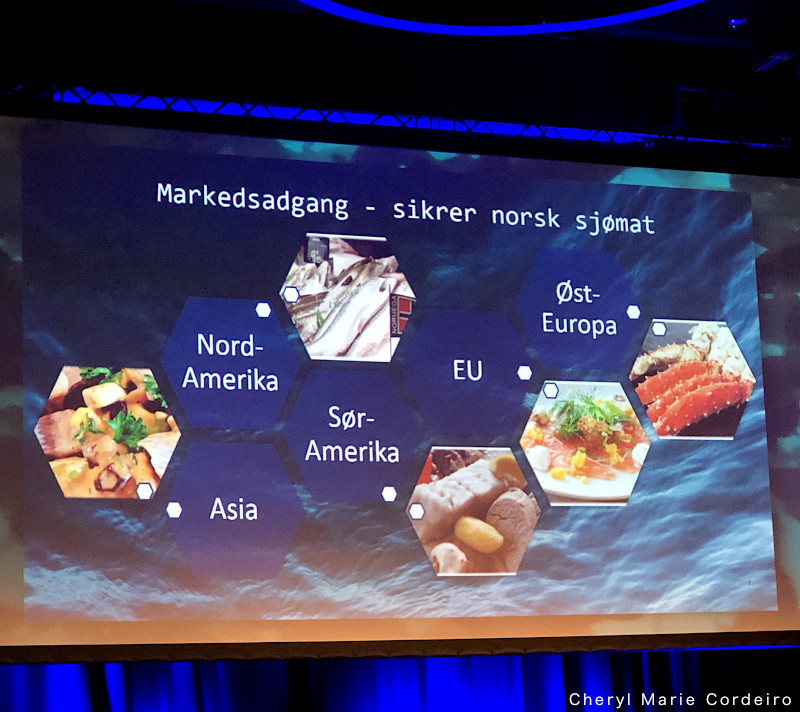
Food safety and security as market access strategy for Norway.
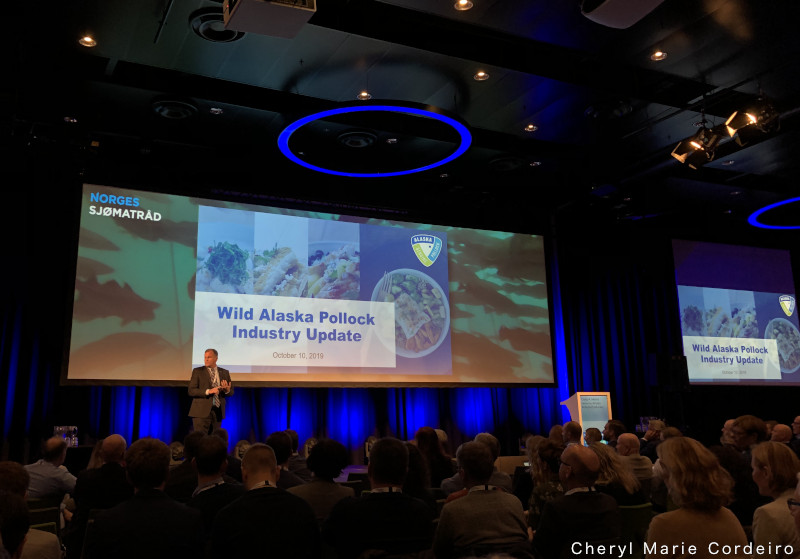
Craig A Morris, CEO of Genuine Alaska Pollock Producers (GAPP), giving an update on the wild Alaskan pollock industry in North America.
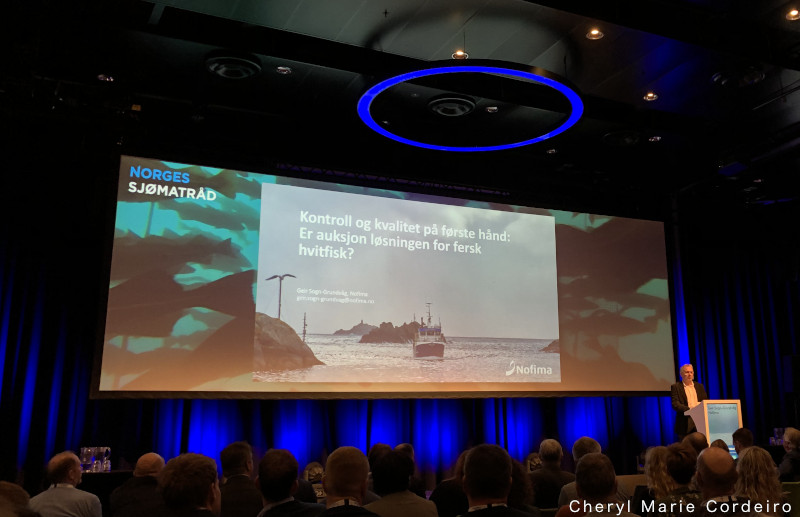
Geir Sogn-Grundvåg, speaking on the subject of whether auctions could be the solution for better food security and quality for whitefish to market.
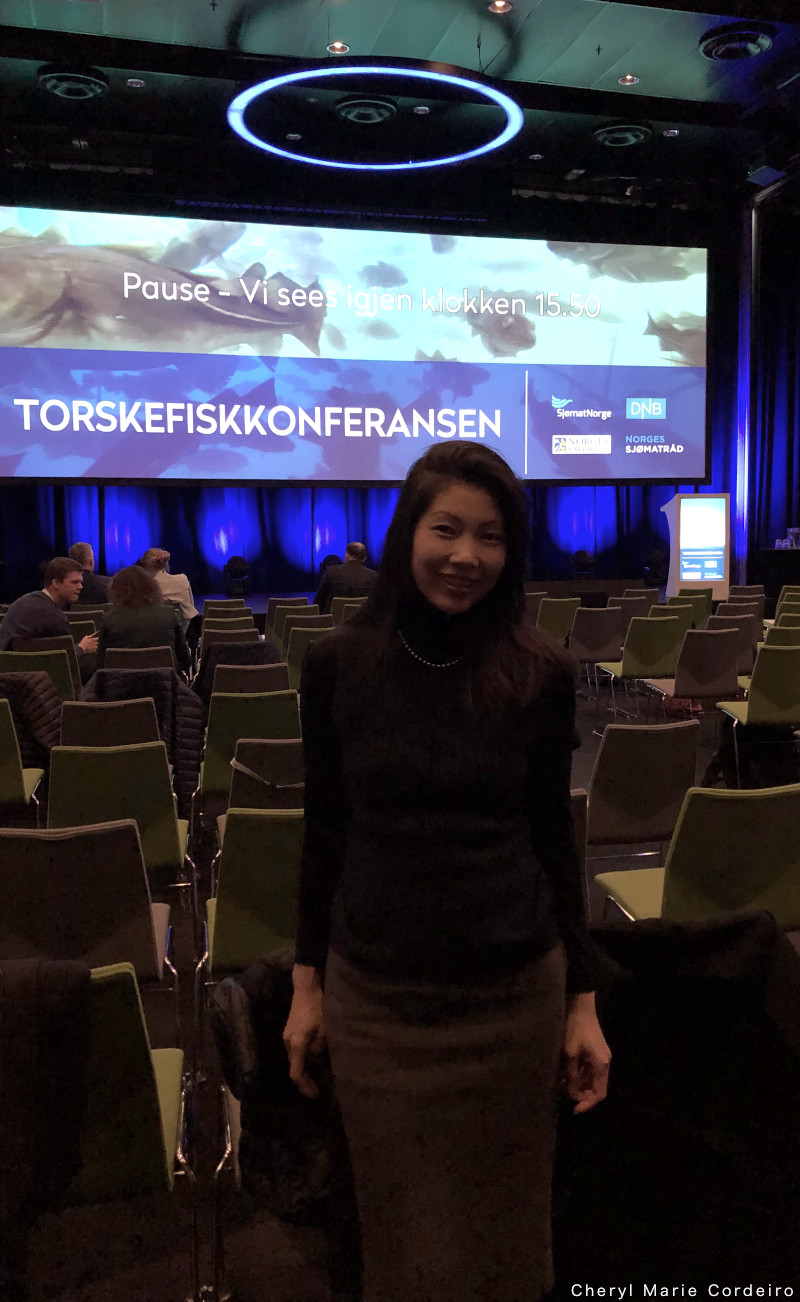
References
[1] Sogn-Grundvåg, G. (2019). Kontroll og kvalitet på første hånd: Er auksjon løsningen for fersk hvitfisk?, Nofima, Torskfiskkonferansen 2019, Norwegian Seafood Council. Internet resource at http://bit.do/geir_sogn_grundvag. Retrieved 12 Oct. 2019
[2] Norwegian Seafood Council (2019). Torskfiskkonferansen 2019, Norwegian Seafood Council. Internet resource at https://seafood.no/aktuelt/konferanser-og-seminarer/torskefiskkonferansen-2019/. Retrieved 11 Oct. 2019.
[3] Angelvik, R. (2019). Regjeringens vyer for hvitfisken; mer enn bare torsk, Nærings-og fiskeridepartementet Norsk, Torskfiskkonferansen 2019, Norwegian Seafood Council. Internet resource at http://bit.do/roy_angelvik. Retrieved 12 Oct. 2019.
[4] Dørum, Ø. (2019). Derfor trenger Norge ny verdiskaping og nye eksportinntekter, NHO,Torskfiskkonferansen 2019, Norwegian Seafood Council. Internet resource at http://bit.do/Oystein_Dorum. Retrieved 12 Oct. 2019.
[5] Larsen, E. (2019). De økonomiske utsikteneProteksjonisme, handelsbarrierer og populistiske ledere –hva blir effekten på verdensøkonomien? DNB, Torskfiskkonferansen 2019, Norwegian Seafood Council. Internet resource at http://bit.do/Eirik_Larsen. Retrieved 12 Oct. 2019.
[6] Morris, C.A. (2019) Wild Alaska Pollock Industry Update, Genuine Alaska Pollock Producers (GAPP), Torskfiskkonferansen 2019, Norwegian Seafood Council. Internet resource at http://bit.do/craig_a_morris. Retrieved 12 Oct. 2019.
